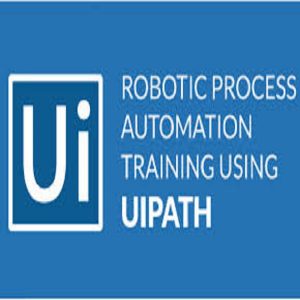Instructor-led Machine Learning using Python live online classes
Date |
Duration |
Timings |
|---|---|---|
| SOLD OUT |
||
| May 17th | SAT & SUN (6.5 Weeks) Weekend Batch | ⚡Filling Fast Timings – 11:00 AM to 02:00 PM (EDT) |
Adda For Your Certification Needs
CertAdda’s Machine Learning Certification Training using Python helps you gain expertise in various machine learning algorithms such as regression, clustering, decision trees, random forest, Naïve Bayes and Q-Learning. This Machine Learning using Python Training exposes you to concepts of Statistics, Time Series and different classes of machine learning algorithms like supervised, unsupervised and reinforcement algorithms. Throughout the Data Science Certification Course, you’ll be solving real-life case studies on Media, Healthcare, Social Media, Aviation, HR.
$492.00 Original price was: $492.00.$449.00Current price is: $449.00.
Date |
Duration |
Timings |
|---|---|---|
| SOLD OUT |
||
| May 17th | SAT & SUN (6.5 Weeks) Weekend Batch | ⚡Filling Fast Timings – 11:00 AM to 02:00 PM (EDT) |
Topics:
Hands-on:
Skills You will Learn:
Topics:
Hands-on:
Skills You will Learn:
Topics:
Hands-on:
Skills You will Learn:
Learning Objectives: In this module, you will learn Supervised Learning Techniques and their implementation, for example, Decision Trees, Random Forest Classifier etc. At the end of this module, you should be able to:
Topics:
Hands-On:
Learning Objectives: In this module you will learn about impact of dimensions within data. You will be taught to perform factor analysis using PCA and compress dimensions. Also, you will be developing LDA model. At the end of this module, you should be able to:
Topics:
Hands-On:
Learning Objectives: In this module, you will learn Supervised Learning Techniques and their implementation, for example, Decision Trees, Random Forest Classifier etc. At the end of this module, you should be able to:
Topics:
Hands-On:
Learning Objectives: In this module, you will learn about Unsupervised Learning and the various types of clustering that can be used to analyze the data. At the end of this module, you should be able to:
Topics:
Hands-On:
Learning Objectives: In this module, you will learn Association rules and their extension towards recommendation engines with Apriori algorithm. At the end of this module, you should be able to:
Topics:
Hands-On:
Learning Objectives: In this module, you will learn about developing a smart learning algorithm such that the learning becomes more and more accurate as time passes by. You will be able to define an optimal solution for an agent based on agent environment interaction. At the end of this module, you should be able to:
Topics:
Hands-On:
Learning Objectives: In this module, you will learn about Time Series Analysis to forecast dependent variables based on time. You will be taught different models for time series modelling such that you analyse a real time dependent data for forecasting. At the end of this module, you should be able to:
Topics:
Hands-On:
Learning Objectives: In this module, you will learn about selecting one model over another. Also, you will learn about Boosting and its importance in Machine Learning. You will learn on how to convert weaker algorithms to stronger ones. At the end of this module, you should be able to:
Topics:
Hands-On:
Learning Objectives: In this module, you will learn how to approach and implement a Project end to end, and a Subject Matter Expert will share his experience and insights from the industry to help you kickstart your career in this domain. Finally, we will be having a Q&A and doubt clearing session. At the end of this module, you should be able to:






